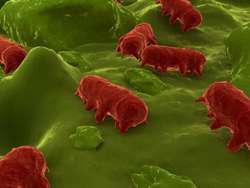Phagevet-P: Applying viruses to treat bacterial diseases

The quest for enhanced food safety has driven research into novel treatments for bacterial diseases in livestock. A European consortium proposed the use of bacteriophages (bacteria-targeting viruses) to treat salmonella in poultry.
New EU regulations wish to substitute the use of antibiotics to treat animal diseases caused by salmonella and campylobacter. At the same time, food-borne pathogens are becoming resistant to antimicrobials used during animal production with the risk of passing through the food chain. As a result, alternative regimens to currently administered antibiotics are urgently required.
Bacteriophage therapy is emerging as such a feasible alternative. The concept lies in the specificity of bacteriophages to kill certain strains of bacteria and not cause infections in animals and humans. Treatment of animals with specific phages could, therefore, reduce or eliminate pathogens responsible for the majority of human food-borne illnesses, namely salmonella and campylobacter.
The EU 'Veterinary phage therapies as alternatives to antibiotics in poultry production' (Phagevet-P) project aimed to evaluate the potential use of phages as alternatives to antibiotics in poultry production.
As a first step, project partners isolated and characterised several phages active against salmonella and campylobacter from sewage water and poultry carcasses. These phages were tested against a pool of food and clinical isolates of salmonella enterica enteritidis, campylobacter coli and campylobacter jejuni.
In vivo administration of phage by oral gavage or incorporation in food and subsequent analysis showed a two- to three-fold reduction in salmonella and campylobacter numbers. To minimise the risk of developing phage resistance and achieve maximal pathogen elimination, it was proposed to administer phage one day before slaughter.
The Phagevet-P approach was successfully validated as a feasible alternative to antibiotics, supporting the general use of bacteriophages to control pathogenic or undesirable bacteria.
Provided by CORDIS















